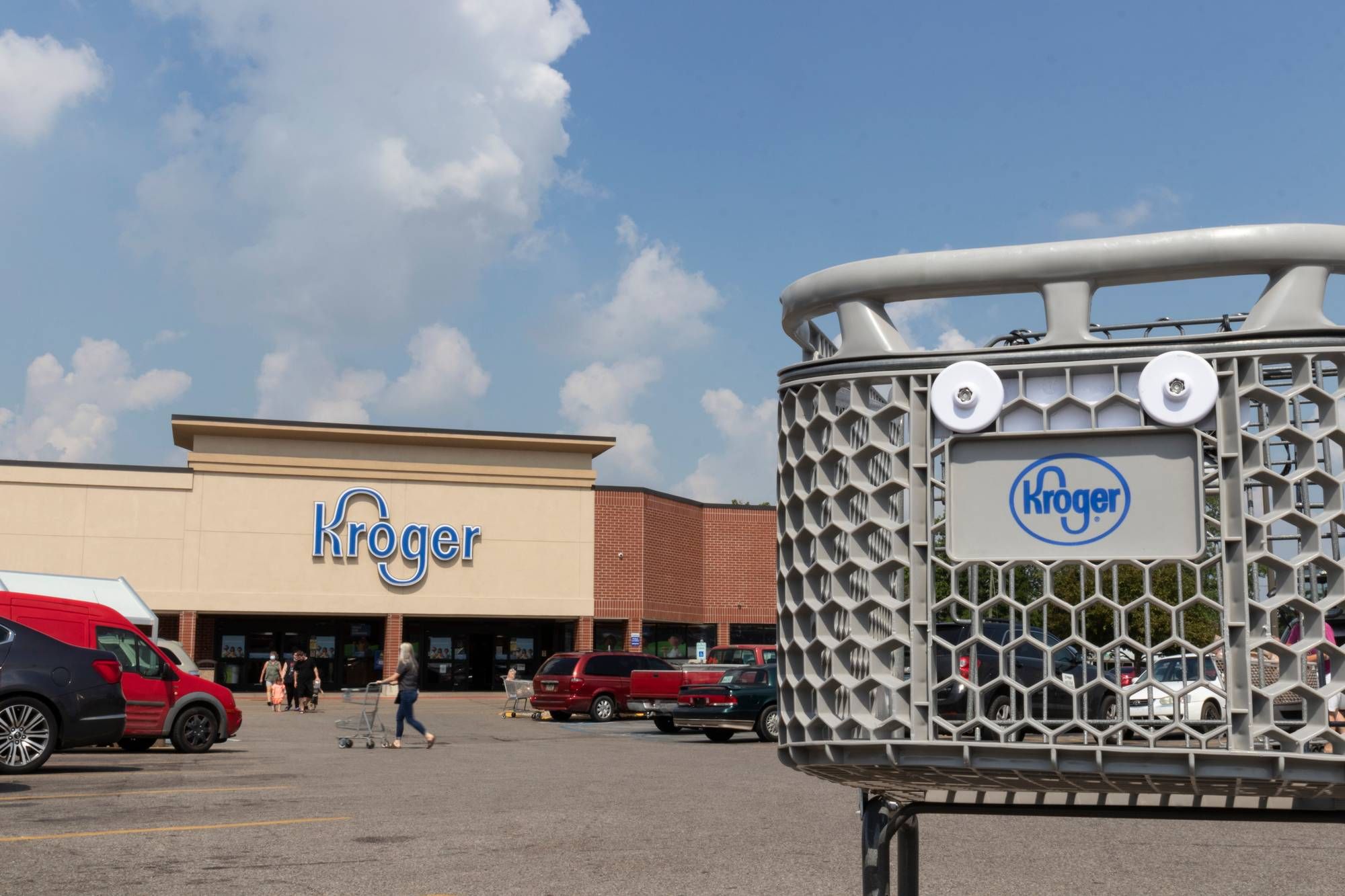Top Class Actions’s website and social media posts use affiliate links. If you make a purchase using such links, we may receive a commission, but it will not result in any additional charges to you. Please review our Affiliate Link Disclosure for more information.
Customers of three affiliated Kroger stores in suburban Illinois have filed a class action lawsuit against the supermarket giant over claims their privacy was violated by the company’s security systems.
Plaintiffs Diane Arnold and Jennifer Stewart filed their class action lawsuit against The Kroger Company, its subsidiary, Roundy’s Supermarkets Inc., and its subsidiary, Mariano’s in the Circuit Court of Cook County, Illinois on Aug. 28.
The shoppers, one of whom is also a store employee, say the security cameras and facial recognition software used at two Mariano’s markets illegally collected their “biometric data” without their consent.
The plaintiffs allege that the stores failed to have a policy in place governing the retention and required destruction of the biometrics captured by the system.
In their Kroger stores class action, they accuse the stores of violating the state’s Biometric Information Privacy Act by scanning the faces of everyone who passes in front of security cameras at the entrance and exit of two of the markets. The scanning systems reportedly map the geometry of each person’s face and picks up distinguishing markers. Allegedly, this violates state privacy law requirements.
In 2008, state lawmakers enacted the Illinois Biometric Information Privacy Act to help consumers address the growing risk of identity theft with new technology that relies on the processing of biometric data.
Identity theft by conventional means – using a person’s personal and financial information – is dangerous, but victims can change their account numbers, passwords and access codes to reestablish their identities on paper. Unlike these victims, victims of biometric identity theft cannot change their physical identifiers.
To protect the public, BIPA prohibits private entities, like stores, from collecting biometric data without informed written consent and requires them to have a written policy for the retention and destruction of that information. Private entities are also barred from disclosing biometric data collected without written consent and from profiting from disclosure even if consent is obtained.
The law also demands that private entities protect all collected biometrics in a “similar, if not more protective, manner” than they do “other confidential and sensitive information,” such as Social Security numbers and passcodes.
Stewart, who works and shops at a Mariano’s location, said she learned about the existence of the facial recognition system when she overheard fellow employees talking about it. Stewart noted that she saw the cameras at the entrance and exit of the store and one in the employee break room. She was allegedly “able to see images on the computer monitors in the store’s office that loss-prevention workers could pull up from the cameras.”

While giving testimony in that case, a Mariano’s district manager in charge of 22 stores revealed that the company was using the facial recognition system at the entrances and exits and that they “shoot upwards so as to collect facial recognition data even from visitors wearing hats, hoodies, et cetera.”
The grocers reportedly use the biometric security system to identify shoplifters, but they have not gotten the legally required consent to use the systems to scan customers or employees, the class action lawsuit says.
In addition to gathering the biometric information, the plaintiffs say Mariano’s shared it with Roundy’s Supermarkets, Kroger and the companies’ third-party biometric device and software vendor, which they also claim is unlawful without their consent.
Arnold and Stewart are seeking the court’s approval to represent a Class of people who have been scanned by facial recognition biometric security systems at either Kroger, Roundy’s, Roundy’s Illinois or Mariano’s markets. They are asking for damages of $1,000 for each negligent violation of the Illinois Biometric Information Privacy Act and $5,000 for each willful violation of the privacy laws.
Have you shopped at a Mariano’s, Roundy’s or Kroger grocery store and been scanned by a facial recognition biometric security system without your written consent? Tell us about it in the comment section below.
Arnold, Stewart and the other proposed Class Members are represented by Daniel Gustafson, Raina Borrelli and Kaitlyn Dennis of Gustafson Gluek PLLC and Ryan Stephan, James Zouras and Haley Jenkins of Stephan Zouras LLP.
The Kroger Stores Class Action Lawsuit is Diane Arnold, et al. v. Roundy’s Supermarkets Inc., et al., Case No. 2020-CH-005622, in the Circuit Court of Cook County, Illinois.
Read About More Class Action Lawsuits & Class Action Settlements:
Are Thinx Underwear Toxic? Report Says Yes!
A Guide to The Hartford Claims Process for LTD
What Does the Lemon Law in Alabama Cover?
Amazon Class Action Lawsuit Says Retailer Sells Dangerous Lithium-ion Batteries
















358 thoughts onKroger Stores Class Action Says Security System Violates Privacy Law
Please add me I am in detroit and every time I go into Kroger I’ve been paranoid they’ve set off the same isle warning, section, and store sweep whenever I walk down certain isles. I started to get paranoid because they were leaving the items I buy in the isle I go to at the one location and it scared me.. I’ve been paranoid and have felt like I’m being watched at Kroger i would like to be a part of this.
Add me
Please add me. I shop regularly at Mariano’s in Illinois.
Please add me.